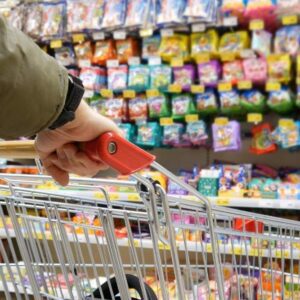With Christmas fast approaching, you might find yourself wondering what to expect from your first sober holiday season. Although Christmas in recovery might look and feel different from past celebrations, spending the holiday season sober can be a chance to reflect on what you’ve already accomplished while making plans to continue to move forward in your recovery journey.
To help you prepare for the holidays, Waypoint Recovery Center has assembled this list of tips for celebrating your first sober Christmas. If you have any additional questions or concerns, we encourage you to contact the team at our South Carolina residential addiction treatment program. Our goal is to provide the support you need to face the challenges of life in recovery with confidence.
1. Set Reasonable Boundaries
Your sobriety needs to be your first priority regardless of what the calendar says. Don’t feel obligated to spend time with people who aren’t 100% supportive of your commitment to recovery or to engage in activities you believe will put you at risk just because it’s a holiday.
2. Decide What You’re Willing to Share
You don’t owe anyone your recovery story, but people you haven’t seen in a while are going to be curious. Before you attend any holiday events, think about what you are comfortable sharing. If you’d rather keep your journey private, it’s fine to simply say that you realized you had a problem and you’re getting the care you need to make healthy choices moving forward.
3. Have Realistic Expectations
Picture-perfect holiday celebrations only exist in movies and television shows. In real life, guests arrive late, dinner gets burned, the children get cranky, and tempers sometimes flare. When things don’t go quite as planned, have compassion for yourself and those around you. What seems like a complete disaster today may end up being a cherished holiday memory that brings a smile to your face in the years to come.
4. Bring Your Own Beverage
If you’re worried about being the only one who isn’t drinking, show up with your own tasty non-alcoholic beverage. If you already have a drink in your hand, people will be less likely to offer you a beer or a glass of wine. If you bring enough to share, you may even find that others voluntarily choose to abstain from alcohol. Our friends over at St. Joseph Institute for Addiction have a roundup of festive non-alcoholic holiday drink ideas that are perfect for any Christmas celebration. Our post, 8 Tips to Turn Down Alcohol in Social Settings, has additional tips you might find useful.
5. Make a Contingency Plan
To reduce the risk of relapse, you need to think about what you’ll do if you find yourself in a situation that triggers strong cravings or is otherwise uncomfortable. Will you only attend events with someone you trust so you can easily leave if a situation gets out of hand? Do you have a way to get in touch with your sponsor when you’re struggling? Can you find a quiet place and do some deep breathing exercises until your craving passes? Your counselor can help you make a plan for how to deal with potential challenges so you can feel more confident about celebrating with your loved ones.
6. Create New Traditions
If most of your Christmas memories center around drinking or using, think of this as the perfect opportunity to create new holiday traditions. Spend the day baking cookies to share with your neighbors, get in touch with your crafty side and make handmade holiday decorations, or take a drive around the neighborhood to admire the Christmas lights while you listen to your favorite Christmas music. Since you’re no longer under the influence, you’ll be able to savor every moment.
7. Find Ways to Give Back
One of the best ways to feel festive during the holidays is to do something nice for someone else. Consider donating to a local toy drive, volunteering at a food bank, or participating in a community service project sponsored by your place of worship to help you keep your focus on the true meaning of Christmas. Acts of kindness make you thankful for your own blessings, which will boost your mood and make it easier to continue making progress in your recovery journey.





